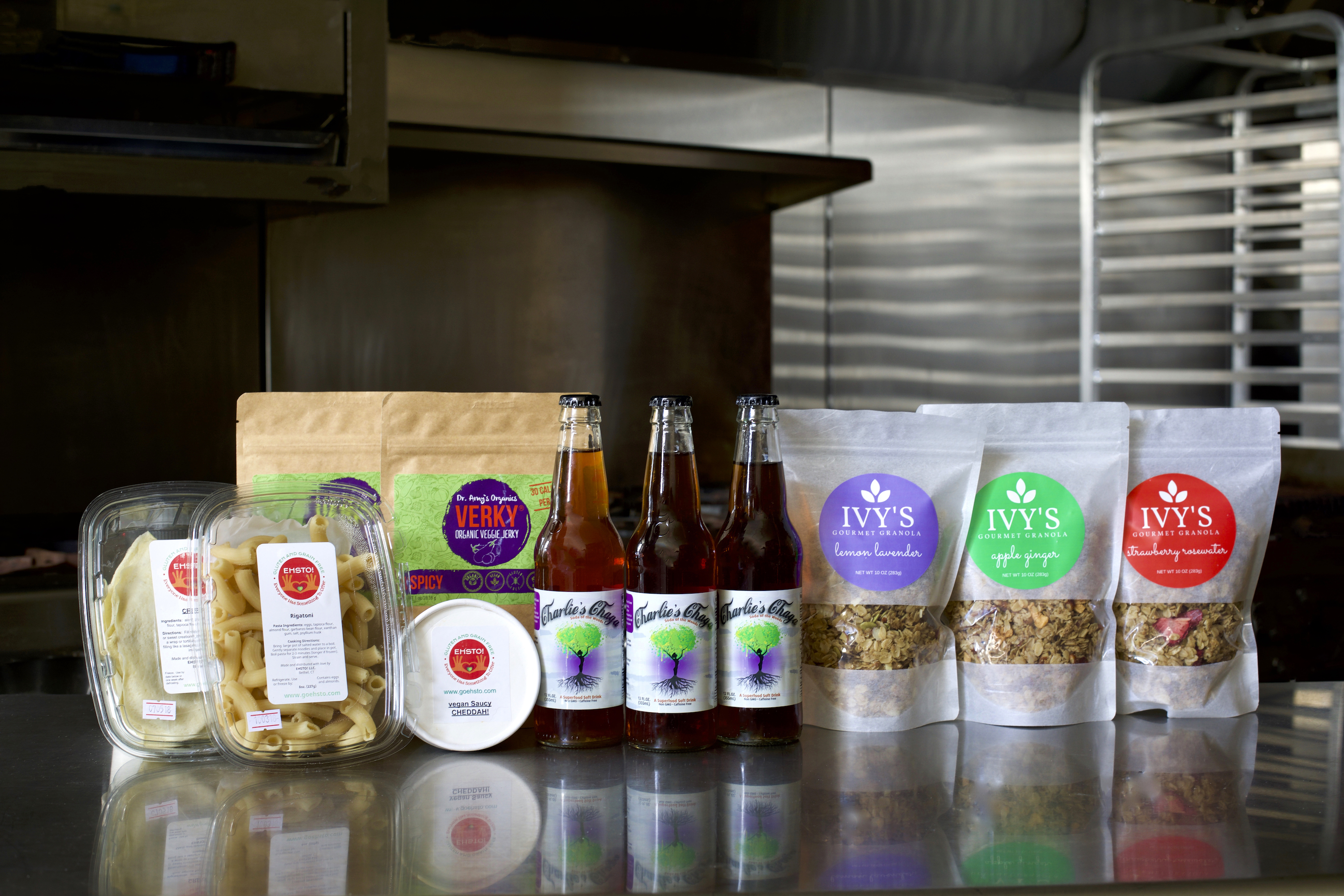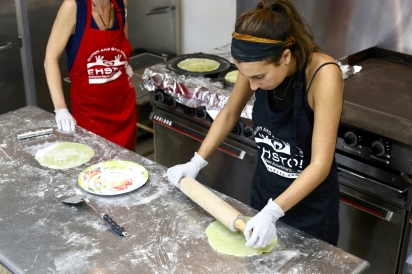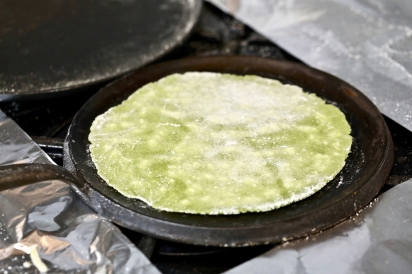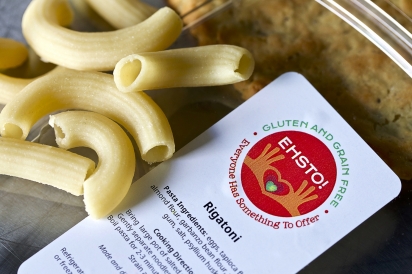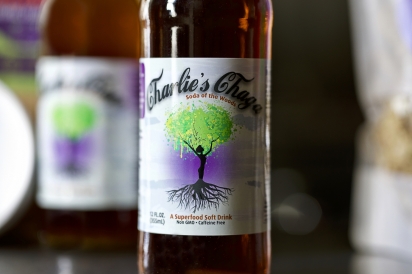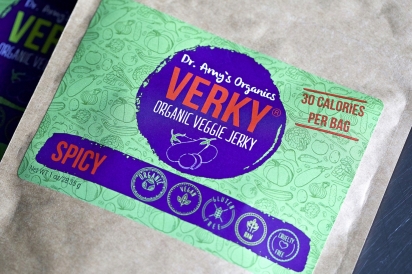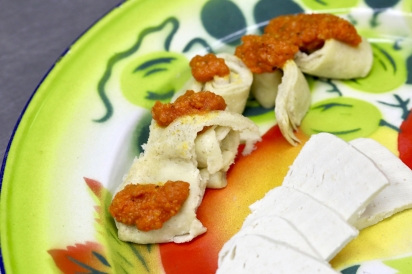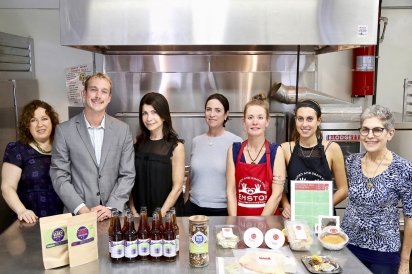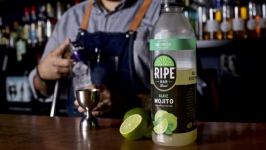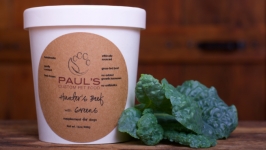C&K Community Kitchen
The startup world loves to lavish praise on the ideas of creative entrepreneurs and the investors who back them. However, a vibrant entrepreneurial ecosystem requires more than just ideas and capital. It needs critical infrastructure that enables entrepreneurs to test, experiment, and manufacture their goods and services. In Westport, one such enabler in the startup food sector is C&K Community Kitchen, a certified commercial kitchen that is available for rent to those who produce organic, non-GMO foods. Founded in 2015 by Sarah Gross, C&K is home to several local businesses that range from brand-new companies, just beginning to develop prototypes, to those more established that use the facility to prepare products for local farmers markets and retail distribution.
“Our mission is to provide people with affordable kitchen space to help get more organic and non-GMO food out in the marketplace,” says Gross. “I want to help the entrepreneur who is just starting out and who might not be able to get traction, otherwise.”
Freshly minted entrepreneurs could not ask for a better mentor. Gross has an extensive background in the food industry that includes a career as a professional caterer and food-stylist service provider for photo shoots. Her introduction to the professional food industry kicked off shortly after Gross returned to Westport – after receiving an art degree from the Philadelphia College of Art – when she replied to a help-wanted ad that turned out to be Martha Stewart seeking cooks for her retail store, The Market Basket. Gross got the job with Stewart and never left the food industry, ultimately opening her own catering business, which she ran for 35 years before converting it into C&K Community Kitchen.
After so many years in the business, one might think Gross is ready to hang up her spoons, but she remains hungry to make a positive impact. “Serving as a bridge builder to give others an opportunity is what motivates me at this time in my life,” she says. Gross makes the kitchen easily accessible with flexibility that can serve the needs of all types of businesses and products. The kitchen can be rented in four- and eight-hour shifts, with cost contingent on frequency of use and local health department approval. Overall, the total fee is a fraction of what it would take for someone to build and operate their own kitchen, removing a significant financial barrier that might prove fatal to a nascent business. “What gives me the most joy is opening a door for someone else,” Gross says.
True to her word, opening doors for food entrepreneurs is what her kitchen does best. Take Robin Van Riper, one of C&K’s longest-running tenants and founder of EHSTO!, an artisan food business that makes gluten- and grain-free pastas, tortillas, and pizza crusts. The kitchen enables her to do everything from rolling dough to packaging finished products. Because C&K is zoned for retail, consumers can even arrange to pick up EHSTO! goods directly from the kitchen.
Charlie Hibben recently founded the The Chaga Cola Company, which makes a soft drink from chaga mushrooms, a superfood containing more antioxidants per gram than pomegranates and blueberries. Hibben produces the syrup for the soda in the C&K kitchen and, after experimentation with various formulations, recently announced landing his first retail accounts in Darien.
Or there is Dr. Amy Wiesner, who founded Verky®, a 100% organic, vegan jerky that is made from vegetables. Using the kitchen allowed her to start the business, build distribution, and plan for growth. Her success meant that she ultimately “graduated” from C&K to sign on with a co-packer that could help her manufacture at a larger scale.
“Most everybody that works out of the kitchen is pretty independent, but I’m happy to offer advice and share my wisdom when it’s requested,” says Gross. It’s hard to imagine anyone failing to take Gross up on the opportunity, given her passion that lies at the heart of C&K’s business model. Gross was inspired by Paul Hawken’s 1987 book Growing a Business, which suggests that a business might be the most powerful way to create change in the world. 31 years later, Gross continues to advocate for organic and non-GMO food and feels her little kitchen can make a large impact in the community and beyond. “C&K Community Kitchen gives me a platform to take a stand on what I believe to be true and to drive positive change,” says Gross. “By helping these entrepreneurs, we’re fostering a food culture that benefits the planet.”
Gross offers a humble narrative about the positive impact she has made to date and tends to downplay her accomplishments. But evidence of her community-building prowess was on display when six of her tenants came together to discuss their experiences with the kitchen. The atmosphere was like a reunion, with each of the entrepreneurs catching up with one another, asking how their businesses were doing, and offering advice, all while sampling an array of the food and beverage products that were created in the kitchen. All agreed on one point: Sarah Gross and C&K Community Kitchen played an instrumental role in helping launch and sustain their businesses.
In the media world, spotlights are usually focused on the stories of the wildly successful entrepreneurs or the colossal failures. What often gets lost in the shuffle are the accounts of those who work to build the critical infrastructure that enables and inspires entrepreneurs to fulfill their ambitions. Thanks to Sarah Gross, C&K Community Kitchen is a nurturing home for Connecticut’s next generation of food and beverage businesses to incubate, grow, and perhaps, change the world.
> C&K Community Kitchen: Westport; 203-226-0531


